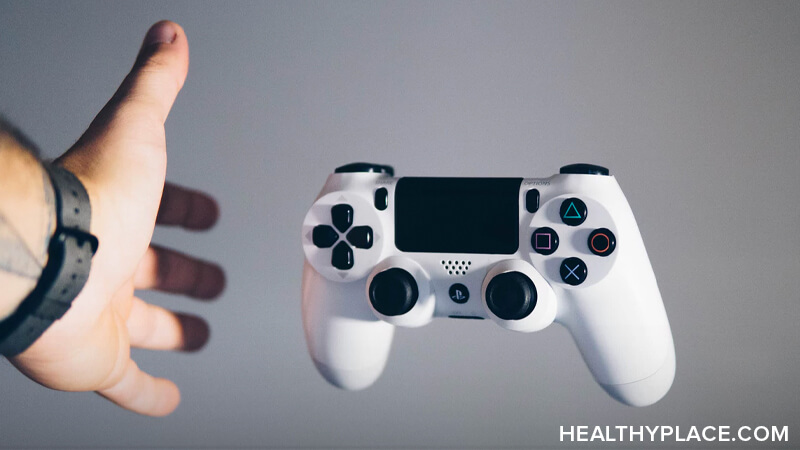How To Quit Video Games, Gaming. How Tough is It?

Learning how to quit video games is the first step in what can be a successful journey to take back your life if you’re feeling trapped by gaming. It can be a tough road full of potholes and annoying speed bumps. The road isn’t closed, though, and it moves continually forward. When you discover how to quit video games—what works for you—you’ll travel ahead into the life you want to live, free from excessive gaming.
How To Quit Video Games and Gaming: Treatment Approaches That Work
Gaming addiction is a new concept. The World Health Organization has included gaming disorder in its International Classification of Diseases, eleventh edition (ICD-11), to be released in 2019. The American Psychiatric Association has listed Internet Gaming Disorder as a condition for further study in its Diagnostic and Statistical Manual of Mental Disorders, Fifth Edition (DSM-5).
Because experts are just beginning to understand that gaming can have serious, negative consequences on someone’s life, they’re also just beginning to study how to quit gaming. While researchers and mental health professionals haven’t identified one particular gaming addiction treatment that stands out as the solution, they have discovered that certain treatment approaches are more successful than others in treating gaming addiction.
Treatment Approaches That Help People Quit Gaming
Four types of treatment approaches have been found to be successful in helping people quit gaming:
- 12-Step programs
- Cognitive-Behavioral Therapy (CBT)
- Motivational Interviewing
- Interpersonal Therapy
Twelve-step programs are modeled after Alcoholics Anonymous (AA) and tailored specifically to behavioral addictions, including gaming (an example is Online Gamers Anonymous). These are peer support groups with a strong spiritual component and involve sharing shortcomings and successes with other group members.
CBT is a therapeutic approach that helps people change their thoughts. People learn to identify automatic negative thoughts and how those thoughts contribute to things such as excessive gaming. Then, people create new ways of thinking and approaching life that replace negative thoughts and harmful behaviors.
Motivational interviewing is a counseling approach that helps people deal with problems and develop the motivation to overcome it. While done with a therapist, the work, the motivation, and the goals come from within the person seeking help.
Interpersonal Therapy is a structured counseling approach that helps people reduce the symptoms of gaming disorder as well as explore the issues behind the gaming behavior. This has also been effective for the depression and interpersonal relationship issues that commonly occur with gaming addiction.
How to Quit Gaming: Some Strategies
Whether or not you’re engaged in a formal program like the ones listed above, you have the power to do things on your own to quit video games. These tips and strategies are especially useful for gaming disorder:
- Log it. Record how much time you spend playing. People often lose perspective when they play video games. Seeing a record of how much of your time is spent gaming can be an eye-opener and a motivator.
- Break free from all-or-nothing thinking. Quitting video games doesn’t have to mean never playing again. The issue, after all, isn’t playing video games. The issue is gaming that interferes in your life, health, and wellbeing. When people know they don’t have to give up gaming altogether, reducing it can be easier.
- Set clear goals. Your overarching goal is likely to decrease the amount of time you spend gaming and take back the quality of your life. With your overall goal in mind, set a series of smaller goals to help you move forward. These can be setting video game time limits and adding things you’d like to do when not gaming.
- Limit your daily playing. Allow yourself a certain amount of playing time. When your time is up, put away all gaming equipment, including the console. Pack it up and lock it away to reduce the temptation to play “just a quick game.”
- Replace gaming. Quitting without replacing it with an alternative typically causes people to return to gaming. Discover new activities that you enjoy to fill in the void with positive things.
Gaming can take over someone’s life and prevent them from living a life full of healthy activities and relationships with others. Asking how to quit video games is an important step. With formal gaming treatment and personal strategies, you can not only quit gaming but replace it with activities and people that bring you happiness.
APA Reference
Peterson, T.
(2021, December 15). How To Quit Video Games, Gaming. How Tough is It?, HealthyPlace. Retrieved
on 2026, February 21 from https://www.healthyplace.com/addictions/how-to-quit-video-games-gaming-how-tough-is-it


